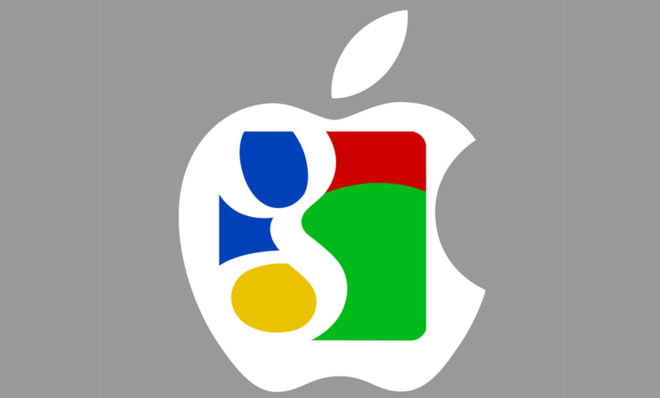Sorry, Woz, but Apple and Google shouldn't work together
Let's keep the two tech titans trying to outfox each other

A free daily email with the biggest news stories of the day – and the best features from TheWeek.com
You are now subscribed
Your newsletter sign-up was successful
Steve Wozniak has no problems ruffling feathers. The same guy who built the Apple I in a dusty garage isn't afraid to publicly criticize the $415 billion technology giant he co-founded in 1976. And his deep love for technology and gadgets knows no bounds, extending — perhaps most famously — to Apple's very powerful and very formidable former ally: Google.
It isn't a secret that Woz is a big fan of Android, despite it being owned by the company on the receiving end of the other Steve's "thermonuclear war," allegedly for copying the iPhone's design. Wozniak wishes things were different, and imagines a world where the competitive landscape between Apple and Google was much friendlier and more open.
In a new interview with BBC by way of Gizmodo, Woz specifically notes that Android's access to Google's search engine elevates it above Siri, and that Apple still has catching up to do in the artificial intelligence department.
The Week
Escape your echo chamber. Get the facts behind the news, plus analysis from multiple perspectives.

Sign up for The Week's Free Newsletters
From our morning news briefing to a weekly Good News Newsletter, get the best of The Week delivered directly to your inbox.
From our morning news briefing to a weekly Good News Newsletter, get the best of The Week delivered directly to your inbox.
"Sometimes I say 'Go to Joe's Diner,' and [Siri] doesn't know where Joe's Diner is. And very often usually I find out that Android does.... That is actually the future of intelligence probably for computers getting smarter and getting artificial intelligence. I wish to God that Apple and Google were partners in the future." [BBC]
He concedes that such a partnership is unlikely to happen, however.
"I don't know. If I were there, it would be pretty likely. I'm probably wrong, there's probably an awful lot I don't know about the business concerns, and one thing you've got to remember is a company has always got to make money. [BBC]
It's a good point, all in all. Silly patent disputes and petty public mud-slinging often seem to stifle technological progress. Plus, it's fun to speculate what an Android/Apple super phone exquisitely crafted from the two platforms' best features would be like.
Thankfully, a Google/Apple partnership won't ever happen, at least in the foreseeable future. Competition is ugly but in the end it stands to benefit consumers. It breeds more variety, lowers prices, and is unanimously agreed to foster innovation in most cases. Why else would the the U.S. have laws — admittedly imperfect ones — designed to strike down antitrust behavior in the first place? As associate professor Maurice E. Stucke at the University of Tennessee College of Law wrote earlier this year:
Competition's virtues are so ingrained within the antitrust community that competition often takes a religious quality. The Ordoliberal, Austrian, Chicago, post-Chicago, Harvard, and Populist schools, for example, can disagree over how competition plays out in markets, the proper antitrust goals, and the legal standards to effectuate the goals. But they unabashedly agree that competition itself is good. [Oxford Journals]
Competition isn't always beneficial for everyone. It can yield, as Stucke suggests, "suboptimal effects." One would be hard-pressed to argue that subjecting low-wage workers in Asia to hellish manufacturing conditions to cut costs is ever a good thing. The same goes for copyright disputes over things like rounded corners.
A free daily email with the biggest news stories of the day – and the best features from TheWeek.com
But the ideological differences that pit Google and Apple against one another in the first place (Google Play's anything goes app policy vs. iOS's gate keeping; Android's scattershot approach with OEMs vs. Apple's tightly regulated in-house grip) serve only to benefit the public good. While it's certainly nice to imagine the two companies skipping through a field of daisies, in the end it's the need to aggressively outfox one another that breeds a nice selection of top-shelf phones, tablets, software, and more for consumers to select from. Choice is good. Otherwise we might all still be using BlackBerrys.
-
 Will increasing tensions with Iran boil over into war?
Will increasing tensions with Iran boil over into war?Today’s Big Question President Donald Trump has recently been threatening the country
-
 Corruption: The spy sheikh and the president
Corruption: The spy sheikh and the presidentFeature Trump is at the center of another scandal
-
 Putin’s shadow war
Putin’s shadow warFeature The Kremlin is waging a campaign of sabotage and subversion against Ukraine’s allies in the West